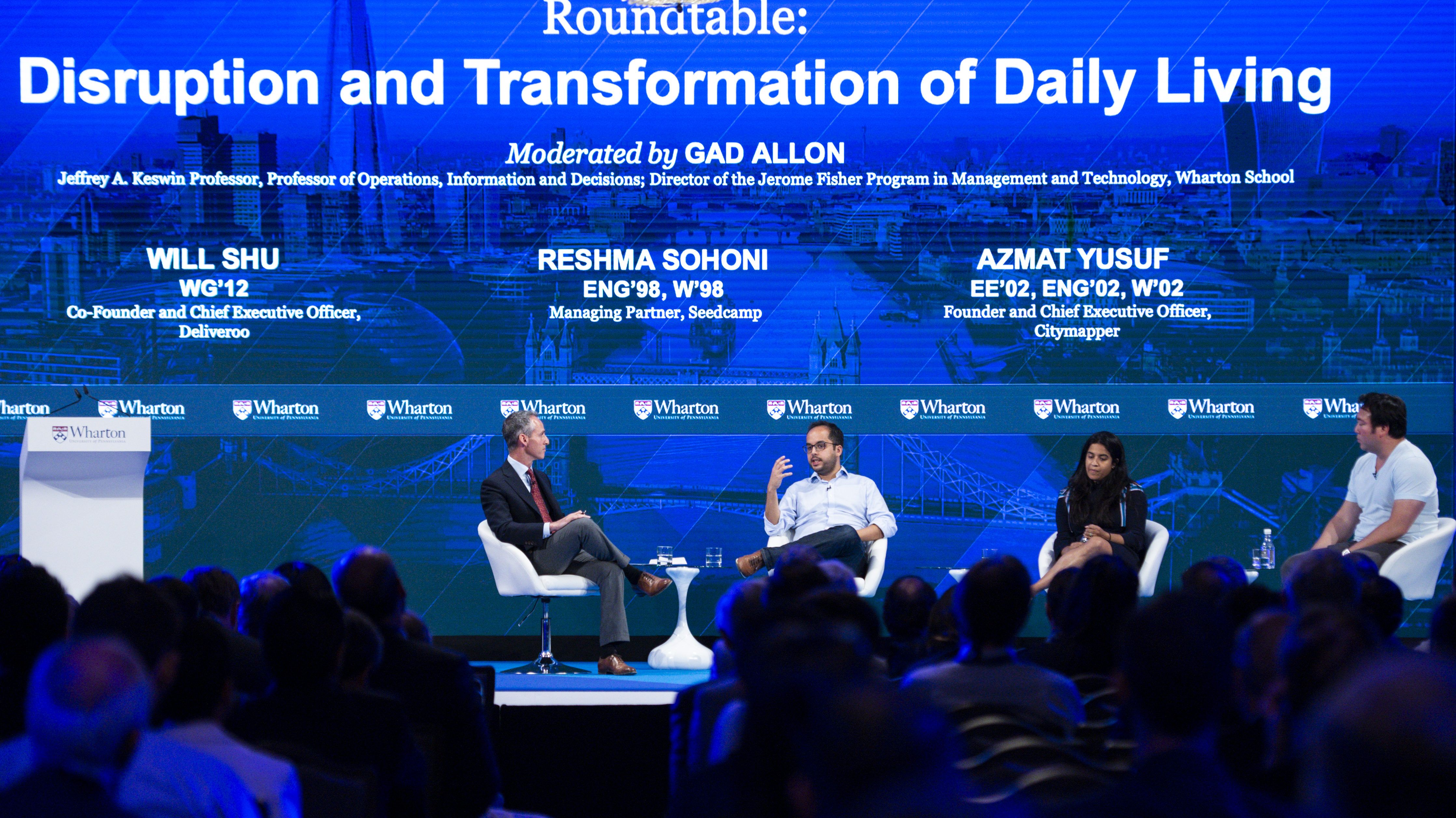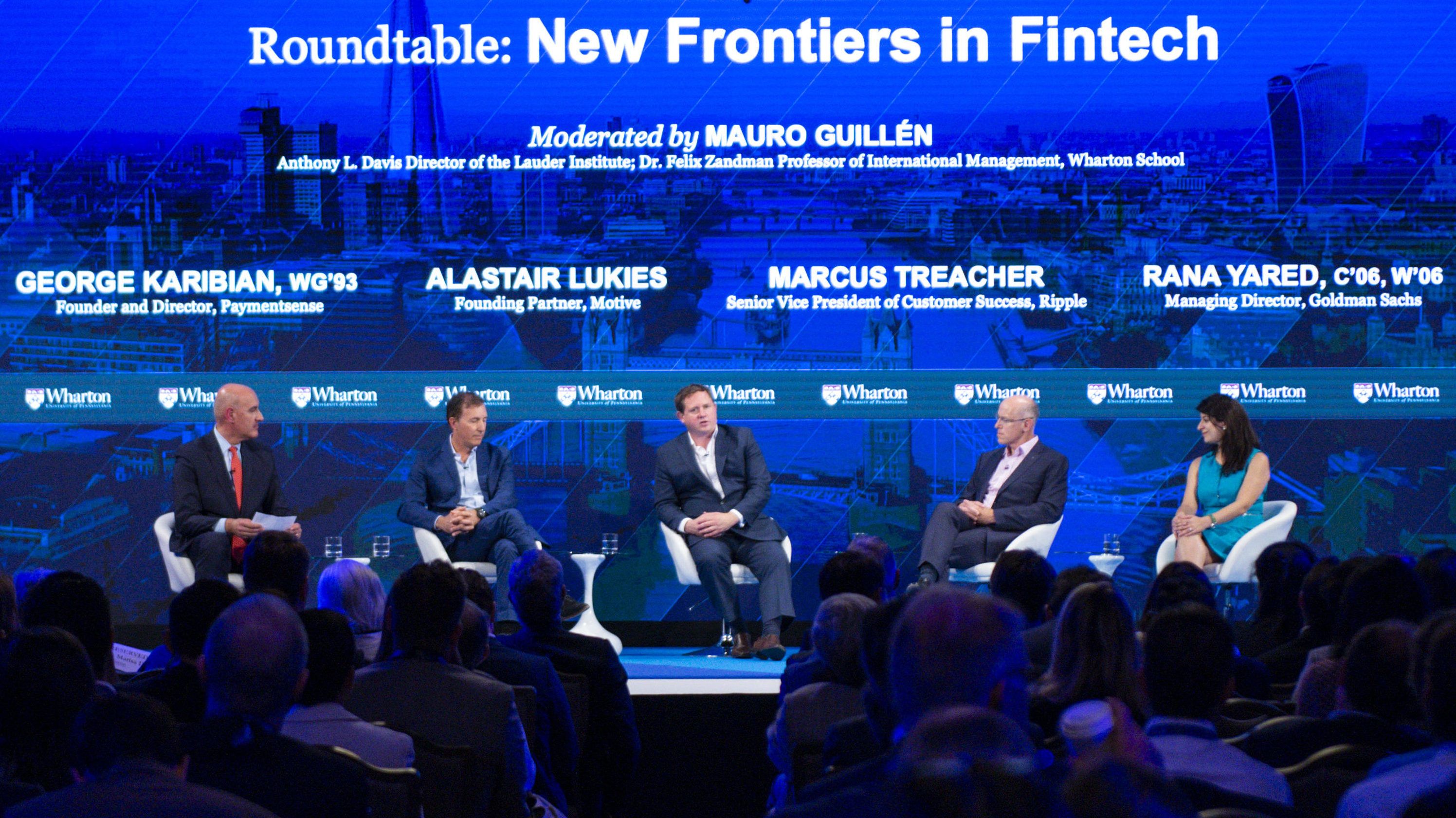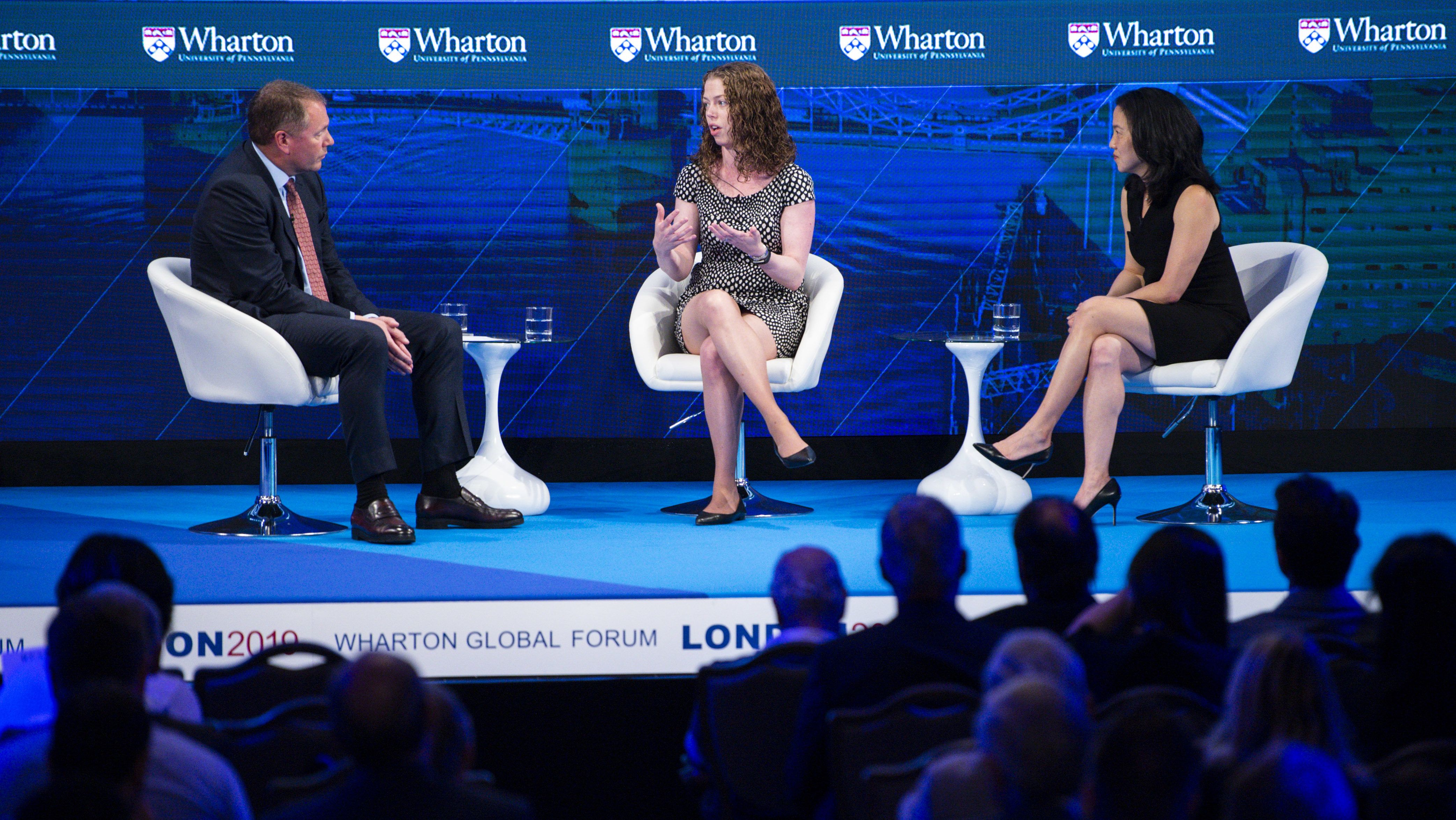Quick Takes on Big Ideas
Sessions you need to know about
One of the hallmarks of any Wharton Global Forum is the auspicious nature of the conversations. Though the keynotes and fireside chats were long-planned, speakers seized the moment and took on the timeliest issues and headlines in business, geopolitics, and economics. Here is a snapshot of some of the key takeaways and perspectives from the Forum.
The Impact of Technological Disruption

Speakers
- Gad Allon, Jeffrey A. Keswin Professor and Professor of Operations, Information, and Decisions, the Wharton School
- Azmat Yusuf EE02 ENG02 W02, Founder and CEO, Citymapper
- Reshma Sohoni ENG98 W98, Managing Partner, Seedcamp
- Will Shu WG12, Co-Founder and CEO, Deliveroo
Reshma Sohoni offered an investor’s take on technological disruption in the health-care industry, observing that as new detection and delivery services transform health care, personal health is the largest market and preventive care is key. “We need to prevent more rather than cure,” said the executive at investment firm Seedcamp. “The biggest movement we see with that is attacking these sectors around prevention and biohacking.”
Alumni-led companies such as Deliveroo and Citymapper propel similarly dramatic shifts in other fundamentals of daily living: eating and travel.
Panelists debated the difference between niche and scale ventures, asking why more people don’t already buy all their groceries online or make decisions based on health tracking. “Embedded systems in place are a bottleneck for innovation,” said Azmat Yusuf, CEO of Citymapper. Will Shu, Deliveroo’s CEO, noted that innovative growth takes time and that his company took six years to gradually build its market share.
In a fast-changing world of endless choice, the panelists reflected on what remains constant: people’s need to belong to communities, to take care of their own and their family’s health, to move, and to eat. “Basic human needs don’t change, but we find new ways of addressing them,” said Gad Allon, Wharton professor of operations, information, and decisions.
The Future of Payments

Speakers
- Mauro Guillén, Dr. Felix Zandman Professor of International Management, the Wharton School
- George Karibian WG93, Founder and Director, Paymentsense
- Alastair Lukies, Founding Partner, Motive Partners
- Marcus Treacher, Senior Vice President of Customer Success, Ripple
- Rana Yared C06 W06, Managing Director, Goldman Sachs
The year 2017 was special in the U.K., according to George Karibian, director at merchant-services provider Paymentsense. That’s because it was the “first time debit card payments surpassed cash transactions,” he said. Karibian predicted that in the future “cash will not disappear, but it will become less relevant” because “it’s expensive [and] inconvenient.”
When it comes to making payments, consumers drive the future of financial behavior. As a consumer-centric device, “the mobile phone is going to change things,” Karibian said. Mobile payment systems are industry game-changers because apps created by Facebook, Uber, WeChat, and other developers make it easy for people to make payments.
With new platforms and processes becoming the norm, Alastair Lukies, founding partner at investment firm Motive Partners, predicted a fusion between incumbent industries and financial innovation, and a shift to a more open mindset. “Fintech isn’t about winning; it’s about global collaboration,” he said.
Making Good Habits Stick

Speakers
- Nicolai Tangen W92, Founder and CEO, AKO Capital
- Katherine Milkman, Professor of Operations, Information, and Decisions, the Wharton School; Co-Director, Behavior Change for Good Initiative
- Angela Duckworth G03 GR06, Christopher H. Browne Distinguished Professor of Psychology; Co-Director, Behavior Change for Good Initiative
In conversation with alumnus Nicolai Tangen, professors Angela Duckworth and Katherine Milkman described how their Behavior Change for Good Initiative (BCFG) at Penn has the power to improve people’s lives. Solving the mystery of enduring behavior change offers an enormous opportunity. BCFG unites an interdisciplinary team of scientists with leading practitioners in education, health care, and consumer financial services, all of whom seek to address the question: How can we make behavior change stick?
“The enemy of humankind might be humankind itself,” Duckworth said. “Our impulses and urges are really strong in the moment. You eat the wrong thing, binge-watch the next video, and then [don’t] study.” Milkman noted that BCFG conducts “mega trials” using a digital platform that scientifically measures the behavior-change efforts of thousands of participants to figure out what works.
One key takeaway: Good habits are more likely to stick if you make them fun, transforming tasks from “have to do” to “want to do,” Milkman said.
 ASK A QUESTION
ASK A QUESTION